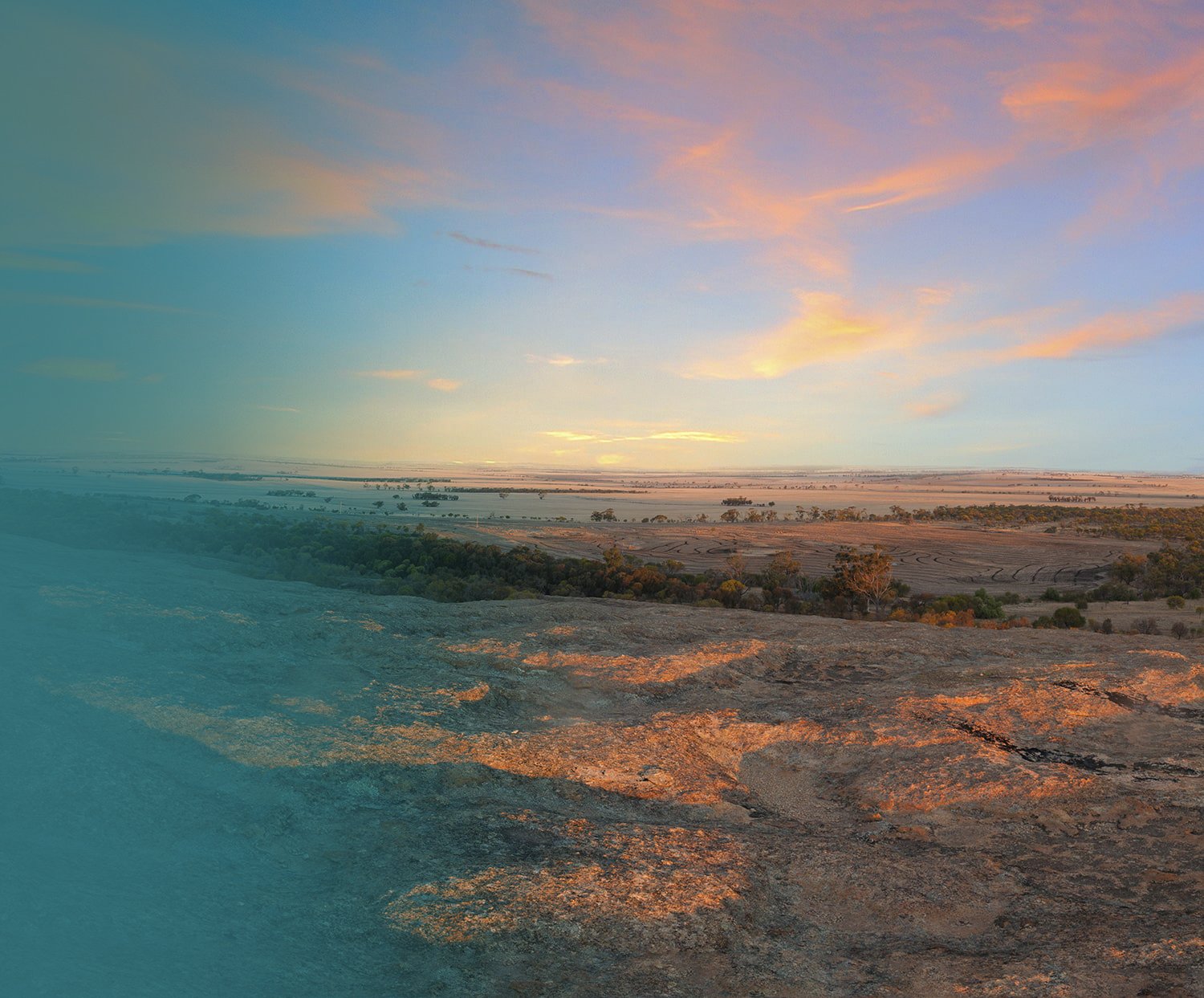
Leading positive change in land management to conserve and protect wheatbelt natural recourses through the creation of respectful partnerships, innovation and community action.

Uniting community, agriculture, industry, and government together to protect our unique biodiverse landscape.
Conservation through consultation and consensus to achieve outcomes.
Western Australia’s soils are a precious resource that not only ensure our future food security but also play a key role in developing the gut biome that directly and indirectly effect our health. That’s why the process we use to monitor, measure, respond and maintain the delicate equilibrium of our Wheatbelt ecosystems is so important.
We’re not just caring for the environment and seeking to restore it to its optimal state; we’re following the science to future-proof the region for habitation and prolonged prosperity.
Carnaby Black-Cockatoos
Let us know if Carnaby’s are visiting your area this summer by completing our simple survey.
This endangered species requires diligent observation and monitoring of its current behaviour, to help provide vital data which will be used to formulate an effective policy response to their dwindling populations.
We’re asking landowners and residents to keep an eye out for these increasingly rare cockatoos, to help us acquire a broad picture of their movements and habits across the Wheatbelt.
Ancient Knowledge, Specialist Equipment and Expert Training
Equipped with ancient knowledge, specialist equipment and expert training, the WNRM Rangers have evolved to become a highly skilled and agile local workforce, specialising in site establishment and maintenance, revegetation and native seed collection to restore Country.
Established in 2014 as a pathway to ongoing employment options, this is a great way to learn new skills as a part of an inclusive team, all while applying your knowledge to practical efforts to improve and protect the natural environment.
Collaborative catchment approach to Wheatbelt Regenerative Agricultural practices
WRNM’s collaborative catchment approach to encouraging and facilitating non-traditional agricultural practices across the Wheatbelt has led to a burgeoning partnership with the Mulloon Institute and the Gabby Quoi Quoi Catchment Group.
Together, we are testing the assumption that farmers working together at the catchment scale can build a sustainable future based on non-conventional practices.
Our aim is to prevent soil degradation by championing restorative farming practices in the face of a drying climate.



